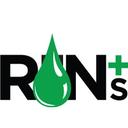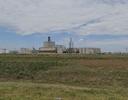North Dakota oil refinery plans to co-process renewable diesel

June 29, 2017
BY Ron Kotrba
A Tesoro oil refinery in Dickinson, North Dakota, has plans to co-process renewable feedstock along with regionally sourced Bakken crude oil to produce a 5 percent renewable diesel blend. Construction is planned to begin in October with start-up expected in December.
Tesoro acquired the Dakota Prairie Refinery in Dickinson last year. The facility can refine up to 20,000 barrels per day (BPD).
To co-process renewable feedstock, such as regionally sourced soybean oil and distillers corn oil from ethanol plants, Tesoro plans to retrofit an existing 8,000 BPD diesel hydroheater and associated equipment. The retrofit would allow co-processing of up to 16,800 gallons per day of renewable feedstock. The company plans to market the renewable diesel blend locally in North Dakota.
Tesoro has applied for a $500,000 grant through the state industrial commission’s renewable energy program. The total cost of the project, according to Tesoro, is $3.5 million.
Advertisement
Advertisement
Haldor Topsoe has been chosen as the project’s technology provider based on its “extensive hydrotreating catalyst experience and proven success in commercialization of facilities to convert vegetable oils and/or animal fats into on-spec renewable diesel,” Tesoro stated.
Haldor Topsoe will also provide technical expertise in determining the catalyst formulation to achieve the desired process yields and an acceptable catalyst life, while maintaining desulfurization of the existing conventional diesel product stream, according to Tesoro.
“The process study will also map out the equipment modifications and feedstock handling equipment additions that will be required to co-process renewable feedstocks at the Dickinson refinery,” the company stated.
Tesoro has selected Jacobs Engineering Group Inc. as engineering and procurement contractor for the project.
Advertisement
Advertisement
As an obligated party under the federal Renewable Fuel Standard, Tesoro indicated the project’s motivation is the increased environmental value of renewable diesel under the RFS.
“The co-processed renewable diesel will generate about 1.7 D5 RINs per gallon,” the refiner stated. “The current market value of a RIN is approximately $1 per RIN.”
As of May when Tesoro submitted its grant application, feedstock sourcing was in the early stages with no agreements in place.
The company said the results of this project will help determine the potential for a larger future renewable project at the Tesoro Dickinson Refinery.
On June 1, Tesoro, which operates seven refineries in the western U.S. along with 3,000 retail locations following its recent acquisition of Western Refining, announced it will change its name Aug. 1 to Andeavor to “reflect the company’s ongoing transformation.”
Related Stories
Biodiesel capacity in the U.S. and Canada dipped slightly stable in 2024, with several renewable diesel producers reporting headwinds and lower margins alongside a drove of SAF projects in various stages of development.
The IEA’s Task 39 group has new research regarding the development and status of the sustainable aviation fuel industry.
The U.S. EPA on Nov. 16 released updated RIN data, reporting that nearly 2.11 billion RINs were generated under the RFS in October, up from 1.81 billion generated during the same month of last year.
Conestoga to host SAFFiRE cellulosic ethanol pilot plant
Conestoga Energy and SAFFiRE Renewables LLC announced on Nov. 16 their agreement for Conestoga to host SAFFiRE’s cellulosic ethanol pilot plant at Conestoga’s Arkalon Energy ethanol facility in Liberal, Kansas.
Officials at Calumet Specialty Products Partners L.P. discussed the company’s proposed plans to boost sustainable aviation fuel (SAF) production at its Montana Renewables biorefinery during third quarter earnings call, held Nov. 9.
Upcoming Events










